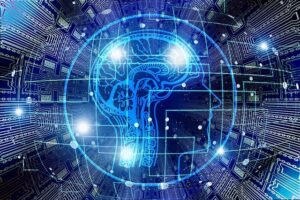
Machine Learning Marvels: Revolutionizing Industries with AI
Machine learning (ML) is at the forefront of technological innovation, reshaping industries with its remarkable capabilities. Imagine a world where computers can learn from data, improve their performance over time, and make decisions with minimal human intervention. This is the power of machine learning, a subset of artificial intelligence (AI) that is revolutionizing the way we live and work. In this article, we’ll explore how machine learning is transforming various industries, driving efficiency, enhancing customer experiences, and paving the way for a smarter future.
Understanding Machine Learning
Before diving into its applications, let’s demystify what machine learning is all about. At its core, machine learning involves training algorithms to recognize patterns in data and make predictions or decisions based on those patterns. There are three main types of machine learning:
Supervised Learning
In supervised learning, algorithms are trained on labeled data, meaning the input comes with corresponding output labels. This type of learning is commonly used for classification and regression tasks, such as predicting stock prices or classifying emails as spam or non-spam.
Unsupervised Learning
Unsupervised learning deals with unlabeled data. Here, algorithms identify patterns and relationships within the data without any guidance. This approach is useful for clustering and association tasks, such as customer segmentation or market basket analysis.
Reinforcement Learning
Reinforcement learning involves training algorithms through trial and error, using feedback from their actions to learn optimal behaviors. It’s often used in scenarios where an agent interacts with an environment, like in autonomous vehicles or game-playing AI.
Machine Learning in Healthcare
The healthcare industry is experiencing a revolution with the integration of machine learning. From improving diagnostics to personalizing treatment plans, AI is making healthcare more efficient and effective.
Improving Diagnostics and Patient Care
Machine learning algorithms can analyze medical images, such as X-rays and MRIs, to detect abnormalities with high accuracy. For instance, AI systems can identify early signs of diseases like cancer, often outperforming human radiologists.
Predictive Analytics in Disease Prevention
By analyzing vast amounts of patient data, machine learning models can predict the likelihood of diseases and suggest preventive measures. This proactive approach can significantly reduce the incidence of chronic diseases and improve overall public health.
Personalized Treatment Plans
Machine learning enables personalized medicine by tailoring treatment plans to individual patients based on their genetic makeup, lifestyle, and medical history. This customization enhances treatment efficacy and minimizes adverse effects.
Machine Learning in Finance
In the finance sector, machine learning is driving innovations in trading, fraud detection, and customer service.
Algorithmic Trading and Investment Strategies
Machine learning algorithms can analyze market data in real-time, identifying trading opportunities and executing trades at lightning speed. This approach, known as algorithmic trading, enhances market efficiency and can generate substantial profits.
Fraud Detection and Prevention
By analyzing transaction data, machine learning models can detect unusual patterns indicative of fraudulent activities. These systems continuously learn from new data, improving their accuracy and reducing the risk of financial fraud.
Customer Service Automation through Chatbots
Chatbots powered by machine learning provide instant customer support, answering queries and resolving issues without human intervention. This automation enhances customer satisfaction and reduces operational costs for financial institutions.
Machine Learning in Retail
The retail industry is leveraging machine learning to create personalized shopping experiences, optimize inventory management, and improve customer service.
Personalized Shopping Experiences
Machine learning algorithms analyze customer behavior and preferences to recommend products tailored to individual tastes. This personalization increases customer engagement and boosts sales.
Inventory Management and Demand Forecasting
By predicting demand patterns, machine learning helps retailers maintain optimal inventory levels, reducing the costs associated with overstocking or stockouts. This forecasting is crucial for efficient supply chain management.
Enhancing Customer Service with AI
Retailers use AI-powered chatbots and virtual assistants to provide 24/7 customer support. These systems handle inquiries, process orders, and even offer fashion advice, enhancing the overall shopping experience.
Machine Learning in Manufacturing
In manufacturing, machine learning is optimizing production processes, improving product quality, and minimizing downtime.
Predictive Maintenance and Reducing Downtime
Machine learning models analyze data from machinery to predict when maintenance is needed, preventing unexpected breakdowns. This proactive approach reduces downtime and extends the lifespan of equipment.
Quality Control and Defect Detection
AI systems can inspect products for defects with high precision, ensuring consistent quality. By identifying defects early in the production process, manufacturers can reduce waste and improve customer satisfaction.
Optimizing Supply Chain Management
Machine learning algorithms optimize supply chain operations by predicting demand, managing inventory, and identifying potential disruptions. This efficiency leads to cost savings and improved delivery times.
Machine Learning in Transportation
The transportation industry is embracing machine learning to enhance safety, efficiency, and sustainability.
Autonomous Vehicles and Self-Driving Technology
Machine learning is the backbone of autonomous vehicles, enabling them to navigate complex environments and make real-time decisions. This technology promises to revolutionize transportation by reducing accidents and improving traffic flow.
Optimizing Routes and Reducing Fuel Consumption
AI-powered systems analyze traffic data to suggest the most efficient routes, saving time and fuel. This optimization is particularly beneficial for logistics companies, reducing operational costs and environmental impact.
Predictive Maintenance for Vehicles
Similar to manufacturing, machine learning models predict when vehicles need maintenance, preventing breakdowns and extending their lifespan. This approach is crucial for fleet management and public transportation systems.
Machine Learning in Agriculture
In agriculture, machine learning is driving advancements in precision farming, livestock management, and resource optimization.
Precision Farming and Crop Monitoring
AI-powered drones and sensors collect data on soil conditions, crop health, and weather patterns. Machine learning algorithms analyze this data to provide farmers with actionable insights, optimizing crop yields and resource use.
Livestock Health Monitoring and Management
Machine learning models analyze data from wearable devices on livestock to monitor their health and behavior. Early detection of illnesses and stress improves animal welfare and productivity.
Optimizing Irrigation and Resource Use
By analyzing weather forecasts and soil moisture levels, machine learning systems optimize irrigation schedules, ensuring crops receive the right amount of water. This efficiency reduces water waste and enhances crop growth.
Machine Learning in Energy
The energy sector is harnessing machine learning to improve efficiency, manage renewable resources, and maintain power grids.
Optimizing Energy Consumption and Efficiency
Machine learning models analyze energy usage patterns to recommend energy-saving measures. Smart grids leverage AI to balance supply and demand, reducing energy waste and lowering costs.
Predictive Maintenance of Power Grids
AI systems monitor power grids for signs of wear and tear, predicting potential failures before they occur. This proactive maintenance ensures a reliable energy supply and prevents costly outages.
Enhancing Renewable Energy Management
Machine learning optimizes the integration of renewable energy sources like solar and wind into the power grid. By predicting energy production and consumption, AI systems enhance the reliability and efficiency of renewable energy.
Machine Learning in Entertainment
In the entertainment industry, machine learning is transforming content creation, recommendation systems, and gaming experiences.
Personalized Content Recommendations
Streaming services like Netflix and Spotify use machine learning algorithms to recommend content based on user preferences and behavior. This personalization keeps users engaged and satisfied.
Enhancing Gaming Experiences
Machine learning creates more realistic and adaptive gaming environments. AI opponents learn from player behavior, providing a challenging and immersive experience.
Automated Content Creation and Curation
AI-powered tools generate and curate content, from news articles to music compositions. These systems assist human creators, increasing productivity and enabling new forms of creativity.
Ethical Considerations in Machine Learning
As machine learning becomes more pervasive, ethical considerations are paramount. Addressing bias, privacy, and accountability is crucial for responsible AI deployment.
Bias and Fairness in AI Algorithms
Machine learning models can inadvertently perpetuate biases present in training data. Ensuring fairness and inclusivity in AI systems is essential to avoid discrimination and promote equality.
Privacy Concerns and Data Security
AI systems rely on vast amounts of data, raising concerns about privacy and data security. Implementing robust security measures and transparent data practices is vital to protect user information.
Transparency and Accountability in AI Systems
Ensuring that AI decisions are explainable and accountable is critical for building trust. Transparent AI systems enable users to understand and challenge decisions made by machine learning models.
The Future of Machine Learning
The future of machine learning is filled with exciting possibilities and challenges. Emerging technologies and trends will continue to shape the landscape of AI.
Emerging Trends and Technologies
Advancements in quantum computing, edge AI, and natural language processing will push the boundaries of what machine learning can achieve. These innovations promise to enhance the capabilities and applications of AI.
Potential Challenges and Opportunities
As machine learning evolves, addressing ethical, technical, and societal challenges will be crucial. Balancing innovation with responsibility will unlock the full potential of AI while mitigating risks.
The Role of AI in Shaping the Future Workforce
AI will transform the workforce, automating routine tasks and augmenting human capabilities. Preparing for this shift through education and reskilling programs will ensure a smooth transition and maximize the benefits of AI.
Conclusion
Machine learning is revolutionizing industries, driving innovation, and enhancing efficiency across various sectors. From healthcare to entertainment, the transformative power of AI is undeniable. As we continue to explore the potential of machine learning, it’s essential to address ethical considerations and ensure responsible deployment. The future of AI holds immense promise, and by harnessing its capabilities, we can create a smarter, more efficient world.




